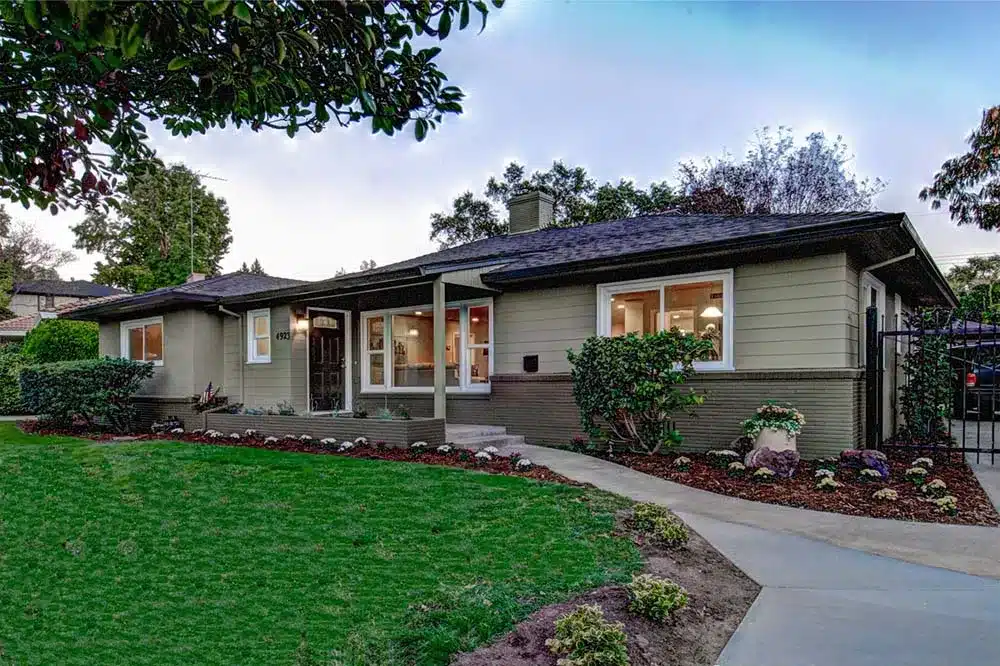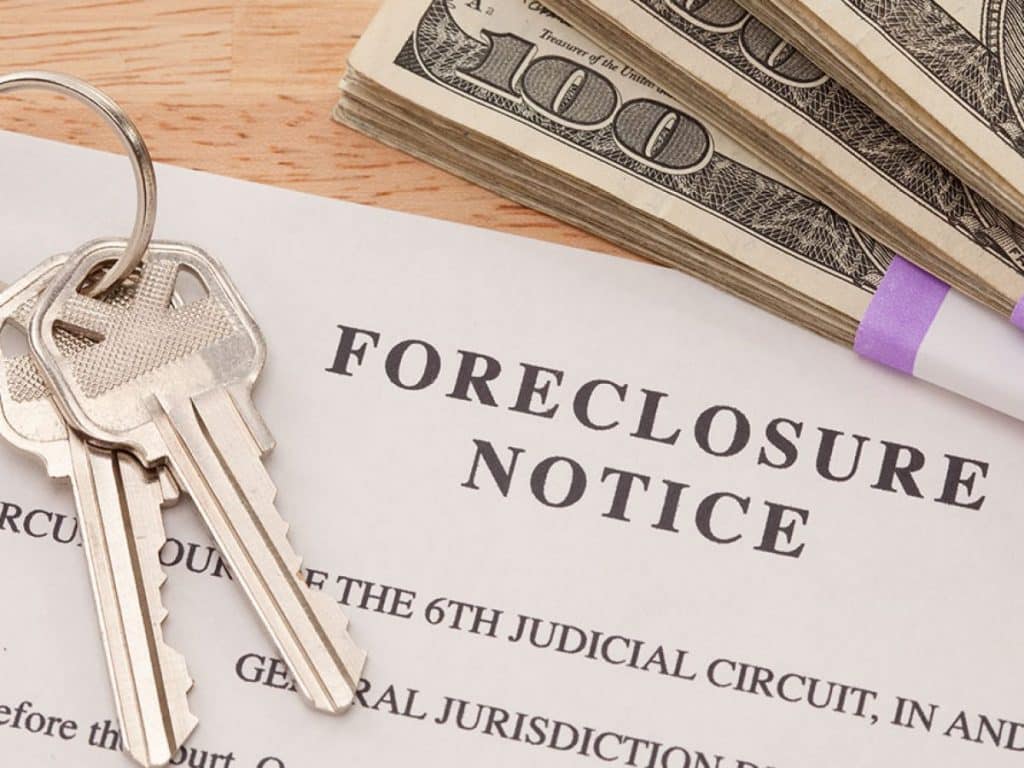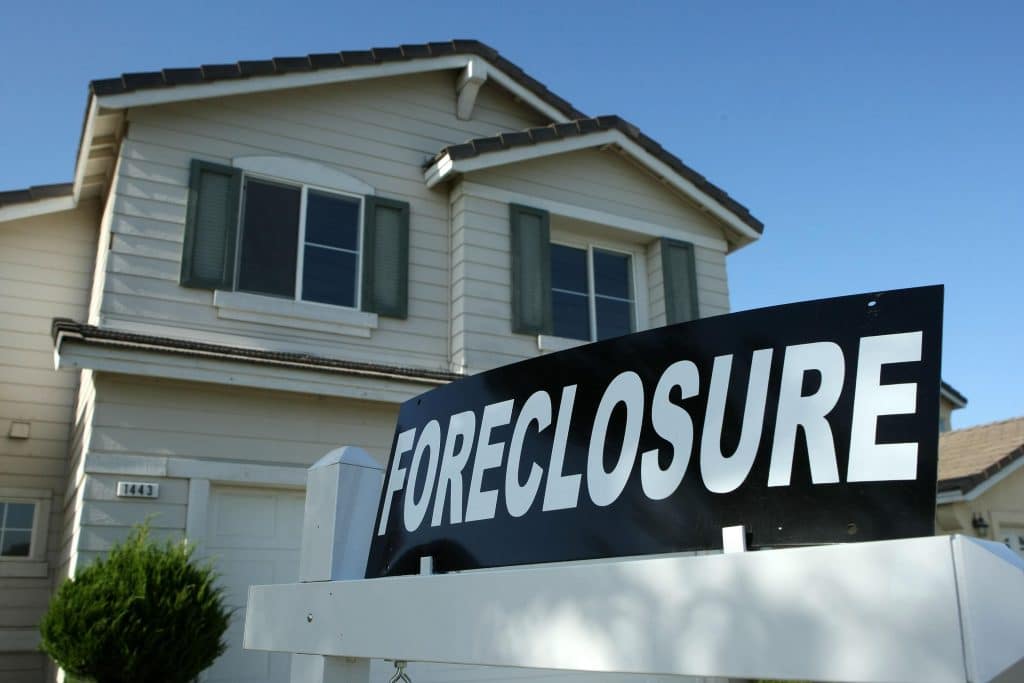Are you waking up at night, worried about the foreclosure notice on your kitchen table? The fear of losing your home can be overwhelming, but there may still be a beacon of hope. Picture this: you’re not just stuck waiting for the auction gavel to slam.
You might actually have the power to sell your property before it’s too late.
Foreclosure sounds final, but it doesn’t always mean the end of your homeowner’s story. Right here in San Antonio, many are surprised to learn that selling their house during this stressful time is indeed an option.
And guess what? One important fact could change everything for you – even if mortgage payments have lapsed and foreclosure looms, selling is possible and could be the lifeline you need.
This article will navigate through the stormy waters of foreclosure, showing you options that may turn things around.
We’ll explore every avenue from loan modifications to speaking with legal experts who might guide your next steps toward a brighter future without foreclosure hanging overhead.
Ready to dive into solutions?
Keep reading; help is on the way!
Quick Summary
- You can sell your house while in foreclosure by acting quickly and considering options like loan modification or a short sale.
- Hiring a real estate agent or lawyer can help navigate the process and improve chances of selling before an auction.
- Understanding the differences between judicial and non – judicial foreclosures is important for making informed decisions.
- Foreclosure has serious consequences including damaged credit scores, which is why it’s essential to explore all available options.
- Negotiating with lenders for solutions that work for both parties is crucial when trying to sell a house during foreclosure.
- Yes, you can sell your house while in foreclosure in San Antonio, but it’s crucial to navigate the process carefully and coordinate with your lender to ensure compliance with foreclosure proceedings.

Understanding Foreclosure
Understanding foreclosure is crucial for homeowners facing financial distress.
Whether it’s a judicial or non-judicial process, knowing the timeline and consequences can help you make informed decisions about selling your house.
What is foreclosure?
Foreclosure happens when a homeowner can’t make their mortgage payments. The lender then tries to take back the house. Often, this is because the homeowner has missed several payments.
When this happens, the bank aims to get back what they’re owed.
In foreclosure, your lender may sell your home at an auction. They want to recoup some money from their loss on the loan. If nobody buys it there, the bank repossesses your home.
A judicial foreclosure means going through court for a judge’s approval. Non-judicial doesn’t involve court and follows state law steps instead. Both ways can lead to losing your home if you don’t act quickly.
[gravityform id=”1″ title=”true”]
Judicial vs. non-judicial foreclosure
Understanding the differences between judicial and non-judicial foreclosure is crucial for you, homeowners in San Antonio, in navigating your options effectively.
| Judicial Foreclosure | Non-Judicial Foreclosure |
|---|---|
| Involves the court system. | Does not involve the court system. |
| The lender must file a lawsuit to begin the process. | The lender can initiate foreclosure based on the power of sale clause in the mortgage or deed of trust. |
| It usually takes longer to complete than non-judicial foreclosure. | Typically faster than judicial foreclosures. |
| Homeowners have a redemption period to sell the house or settle the debt. | Often, there is no redemption period, or it is much shorter. |
| It may be possible to sell the house during the redemption period. | Selling the property before the auction date is essential. |
| The process allows for homeowner defense and potential delays. | Fewer opportunities to contest the foreclosure. |
| Happens in states with specific foreclosure laws requiring court involvement. | Common in states with laws that allow lenders to foreclose without going to court. |
San Antonio homeowners must recognize the urgency of selling their property before the foreclosure process concludes.
This knowledge empowers you to take control of the situation and explore all available avenues to avoid the full impact of a foreclosure.

Timeline and consequences
Foreclosure can take several months to years, depending on the state and type of foreclosure.
During this time, numerous consequences may occur that could impact your financial stability:
- Your credit score may significantly drop, making it difficult to secure new loans or credit cards.
- You may face difficulties in renting a new home due to the foreclosure appearing on your credit report.
- The foreclosure process can lead to emotional stress and strain on family relationships.
- Your ability to qualify for a new mortgage will be affected for several years following a foreclosure.
- Foreclosure proceedings can result in legal fees and additional costs that further increase your financial burden.
[gravityform id=”1″ title=”true”]
Can You Sell Your House in Foreclosure?
Yes, you can sell your house while in foreclosure. There are options available to homeowners facing foreclosure, including loan modification, completing a short sale, or seeking advice from a foreclosure lawyer.
These options can help you navigate the process and potentially avoid the negative consequences of foreclosure.
Yes, it is possible
Selling a house while in foreclosure is indeed possible. You have the option to sell your home, even if you are facing financial distress and behind on mortgage payments.
During the redemption period of judicial foreclosure or before the auction, you can take steps to sell your home and avoid full foreclosure proceedings.
However, it’s essential to work with your lender and explore various options such as negotiating a short sale or seeking loan modification.
By understanding that selling your house during foreclosure is an achievable option, you can take proactive steps to explore different avenues for resolving your financial situation.

Considerations for selling during foreclosure
Selling during foreclosure is possible and comes with important considerations.
Here’s what you need to know:
- Act quickly to get the best offer for your house.
- Explore loan modification or mortgage relief options to prevent foreclosure.
- Consider completing a short sale to sell the house before foreclosure auction.
- Discuss options with a foreclosure lawyer to understand legal aspects.
- Determine whether to sell during pre – foreclosure or after the process has begun.
- Seek guidance from a real estate agent or lawyer for selling the house independently.
- Negotiate with lenders to find solutions that work for both parties.
- Be aware that even if there is equity in the house, the bank may still proceed with foreclosure.
Exploring Your Options
Consider exploring options such as loan modification, completing a short sale, or speaking to a foreclosure lawyer for guidance on selling your house while in foreclosure.
Each option comes with its own set of benefits and considerations to help you make the best decision for your situation.
Loan modification or other mortgage relief
If you’re struggling with mortgage payments, exploring loan modification or other relief options can help.
Contact your lender to discuss modifying the terms of your loan, which could lower your monthly payments and interest rate.
You can also inquire about special programs for homeowners facing financial hardship to avoid foreclosure.
Consider seeking the assistance of a foreclosure lawyer who can guide you through the process and negotiate on your behalf.
Look into government-sponsored initiatives designed to assist homeowners in distress, such as the Home Affordable Modification Program (HAMP) or Principal Reduction Alternative (PRA).
[gravityform id=”1″ title=”true”]
Completing a short sale
Completing a short sale is an option if your house is in foreclosure. It involves selling the property for less than what is owed on the mortgage, with the lender’s approval. This can help you avoid foreclosure and its damaging effects on your credit report.
By negotiating a short sale, you may be able to sell your house to cash home buyers or other interested parties before it goes to auction. Keep in mind that this process requires working closely with the lender and providing detailed financial information.
However, completing a short sale can offer a way out of foreclosure and provide some relief from financial distress associated with mortgage default.
Talking to a foreclosure lawyer
Consult a foreclosure lawyer when exploring options to sell your house during foreclosure.
A knowledgeable attorney can provide valuable advice and guidance on navigating the legal complexities of selling a home in financial distress.
They can assist in negotiating with lenders, understanding your rights, and exploring alternative solutions such as loan modification or completing a short sale.
A foreclosure lawyer’s expertise can help you make informed decisions and potentially avoid the serious consequences of losing your home to foreclosure.
When dealing with foreclosure, seeking legal counsel is crucial. A foreclosure lawyer possesses the expertise needed to protect your interests and advocate on your behalf throughout the process.

Additional Real Estate Advice:
- Working With A Realtor To Sell Your House in San Antonio
- Tips For Selling Your House For Cash Quickly
- is Selling Your House as is a Good Idea
- How To Sell My House Fast For Cash in San Antonio
- is Now a Good Time to Sell a House
- Can You Sell a House With Termite Damage
- Moving Out of State Should I Rent or Sell My House
- is FSBO a Good Idea
- Can My Husband Sell Our Home Without Me
- Can You Sell a Property With a Lis Pendens
- Why is a Cash Offer Better When Selling a House
- Pros and Cons of Selling a House as is
- Can I Sell My House While in Foreclosure
- What is a Subject To Mortgage in Real Estate
- is it Illegal to Sell a House With Termites
- If I Sell My House Will I Lose My Food Stamps
- Sell House For Cash Pros and Cons
- is Selling Your Home by Yourself a Good Idea
- is it Better To Sell Your Home For Cash
- is Selling Your Own Home Worth it
- The Benefits of Selling a House Fast For Cash in San Antonio
- Can I Sell My House To My Friend Without a Realtor
- Why isn’t My Home Selling Faster
- When Should You Sell Your Home as is
- Is Selling Your Home and Renting a Good Idea
- is it a Good Idea to Sell My House Now
- is it Safe To Sell Your Home For Cash
- Can You Sell a House As Is Without Inspection
- is Selling Your House a Capital Gain
- Need To Sell My Home Fast Pros & Cons
- How Much Does it Cost To Sell a House in Texas
- Can I Sell My Parents Home With a Power of Attorney
- Can You Sell a House With Mold in Texas
- Can You Sell Your Home With Code Violations in Texas
- Can I Sell My Home and Still Live it Rent-Free
- Can You Sell a House With a Mortgage
- Top Reasons To Sell Your House Fast
- Should I Sell My House Subject To
- How To Sell Your House Fast Without a Realtor
- Can You Sell a House With Unpaid Property Taxes
- Alternative Ways To Sell A House Quickly
- Top 10 Ways To Sell Your Home Quickly
- is Selling Your Home To a Real Estate Investor a Good Idea
- Is It a Good Time to Sell My House Now
- Who Buys Houses For Cash Near Me
- Paperwork For Selling a House Without a Realtor
- I Lost My Job Should I Sell My House
- Can I Refuse To Sell My House To an Investor
When to Sell and How to Sell
Sell your house during the pre-foreclosure period or after the foreclosure process has begun, using a real estate agent or lawyer to help you act quickly and get the best offer.
To explore more options and learn about selling your house while in foreclosure, keep reading.
Sell during pre-foreclosure or after foreclosure process has begun
During pre-foreclosure or after the foreclosure process starts, you can still sell your house to avoid further complications.
Negotiating a short sale with the lender is an option, even if you’re behind on mortgage payments.
It’s crucial to act quickly and explore all available options while considering selling independently before auction.
Acting swiftly during pre-foreclosure or after foreclosure begins is critical for getting the best offer and avoiding additional financial strain.
Consider seeking advice from real estate agents or foreclosure lawyers to understand your best course of action in this situation without impacting your property equity adversely.
Using a real estate agent or lawyer
Consider hiring a real estate agent or lawyer. They can guide you through the process and help navigate negotiations with the lender.
A real estate agent has expertise in selling properties and can market your home effectively, while a foreclosure lawyer can provide legal advice and represent your interests when dealing with the bank.
Both professionals have experience in handling foreclosures, are familiar with local laws, and can offer valuable insight into selling your house during this challenging time.
Their knowledge can be instrumental in ensuring a smooth transaction and maximizing your chances of selling the house successfully.
If you’re considering selling your house while in foreclosure, enlisting the assistance of a real estate agent or lawyer is crucial to understanding your options, negotiating with lenders, and facilitating a successful sale.
[gravityform id=”1″ title=”true”]
Importance of acting quickly and getting the best offer
Act quickly to sell your house in foreclosure to avoid additional fees and complications. Time is critical, so don’t delay the process. Seek the best offer possible to minimize financial impact and secure a smooth transition.
Take action promptly to explore various selling options before matters escalate further.
Maximize your chances of selling successfully amid financial distress by acting swiftly for a favorable outcome.
Don’t wait – be proactive in securing the best deal available in this challenging situation.
In Conclusion
selling your house while in foreclosure is possible. Explore options like a short sale or loan modification.
It’s crucial to act quickly and work with professionals to get the best outcome for your situation.
Don’t hesitate to seek help from real estate agents or lawyers specialized in foreclosure cases.
[gravityform id=”1″ title=”true”]

FAQs
1. Can I sell my house if it’s in foreclosure in San Antonio?
Yes, even if your home is in a San Antonio foreclosure process, you can still sell your house before the auction.
2. What are my options for selling my house while I’m facing foreclosure?
Your options include negotiating with lenders to sell your house, selling to cash home buyers quickly or independently selling your property before an auction.
3. Is it possible to sell my house during the redemption period?
You can sell your house during the redemption period as this is when you still have legal rights over the property despite being behind on mortgage payments.
4. How do I avoid foreclosure by selling my home?
Selling your house to avoid foreclosure involves finding a buyer fast and settling debts with any money earned from the sale before losing homeownership at an auction.
5. Can bankruptcy help me if I want to sell my house and I’m in mortgage default?
Bankruptcy might offer some options; however, discussing these choices with legal advisors is important as they affect both real estate market transactions and personal financial situations.
Cash For Houses San Antonio?
We Pay Cash For Houses in San Antonio Regardless of Condition, Location, or Price!
Get a cash offer for your San Antonio home by filling out the short online form below.
Our team of savvy real estate problem-solvers is here to guide you through our fast home selling process and give you a fair offer on your home!
[gravityform id=”1″ title=”true”]